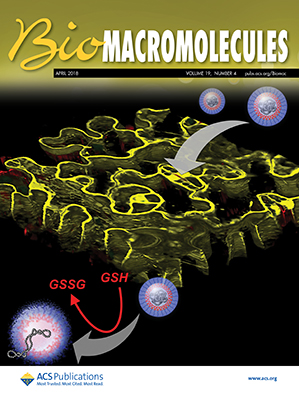琼脂糖载体固定化凝血酶去除亲和标签的研究。
IF 5.5
2区 化学
Q1 BIOCHEMISTRY & MOLECULAR BIOLOGY
引用次数: 0
摘要
凝血酶是一种特殊的丝氨酸蛋白酶,在去除亲和标签的重组蛋白纯化中是必不可少的。然而,它的可溶形式有不稳定、污染和有限的可重用性等缺点。本研究探讨了牛凝血酶的共价固定化,以提高其作为可重复使用的生物催化剂的性能。使用CapiPy工具,确定了适合在琼脂糖载体上固定的表面残留物。在乙醛活化琼脂糖上固定凝血酶的效果最佳,可以有效地去除重组蛋白上的6xhis标签,其活性与可溶性酶相当。它也可以切割其他肽标签,强调它的多功能性。在50℃作用1.5 h后仍保持充分的活性,而可溶性形式几乎失活。在10个批次循环中,固定化酶的性能保持稳定,时空产率达到4.7 g·L-1·h-1。这些发现突出了固定化凝血酶作为一种强大且具有成本效益的工具来改善重组蛋白纯化工作流程的潜力,对工业和研究应用具有重要意义。本文章由计算机程序翻译,如有差异,请以英文原文为准。
Immobilization of Thrombin on Agarose-Based Supports for Affinity Tag Removal
Thrombin, a specific serine protease, is essential in recombinant protein purification by removing affinity tags. However, its soluble form has drawbacks like instability, contamination, and limited reusability. This study explores the covalent immobilization of bovine thrombin to enhance its performance as a reusable biocatalyst. Using the CapiPy tool, surface residues suitable for immobilization on agarose supports were identified. Thrombin immobilized on glyoxyl-activated agarose showed optimal results, efficiently removing 6xHis-tags from recombinant proteins with activity comparable to the soluble enzyme. It also cleaved other peptide tags, underscoring its versatility. It retained full activity after 1.5 h at 50 °C, while the soluble form was almost inactivated. The immobilized enzyme maintained consistent performance over 10 batch cycles and achieved a space-time yield of 4.7 g·L–1·h–1. These findings highlight the potential of immobilized thrombin as a robust and cost-effective tool to improving recombinant protein purification workflows, with significant implications for both industrial and research applications.
- Download: Download high-res image (168KB)
- Download: Download full-size image
求助全文
通过发布文献求助,成功后即可免费获取论文全文。
去求助
来源期刊

Biomacromolecules
化学-高分子科学
CiteScore
10.60
自引率
4.80%
发文量
417
审稿时长
1.6 months
期刊介绍:
Biomacromolecules is a leading forum for the dissemination of cutting-edge research at the interface of polymer science and biology. Submissions to Biomacromolecules should contain strong elements of innovation in terms of macromolecular design, synthesis and characterization, or in the application of polymer materials to biology and medicine.
Topics covered by Biomacromolecules include, but are not exclusively limited to: sustainable polymers, polymers based on natural and renewable resources, degradable polymers, polymer conjugates, polymeric drugs, polymers in biocatalysis, biomacromolecular assembly, biomimetic polymers, polymer-biomineral hybrids, biomimetic-polymer processing, polymer recycling, bioactive polymer surfaces, original polymer design for biomedical applications such as immunotherapy, drug delivery, gene delivery, antimicrobial applications, diagnostic imaging and biosensing, polymers in tissue engineering and regenerative medicine, polymeric scaffolds and hydrogels for cell culture and delivery.
 求助内容:
求助内容: 应助结果提醒方式:
应助结果提醒方式:


